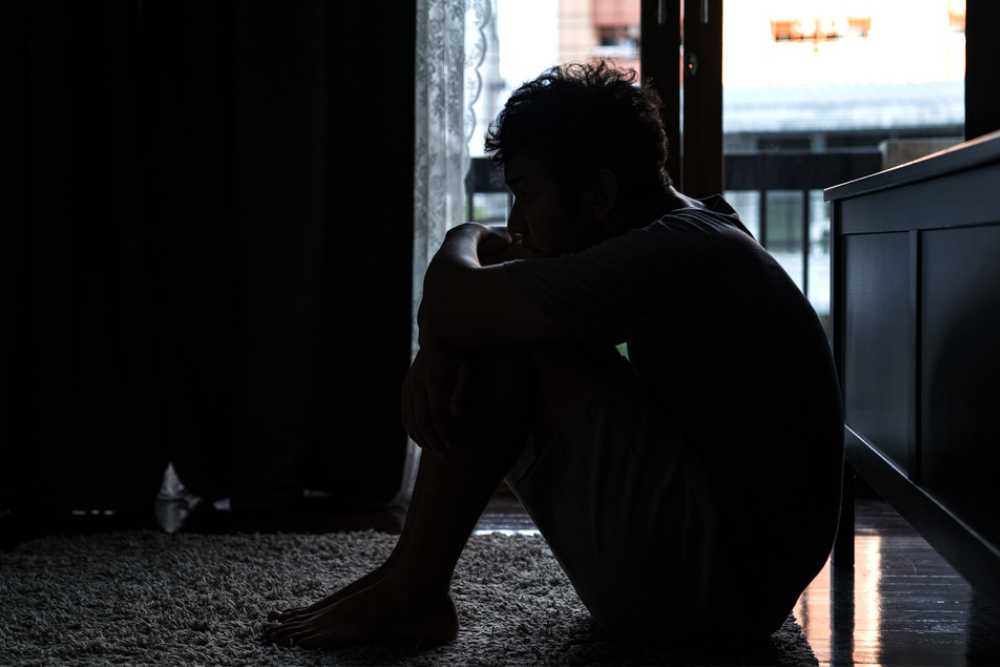Obsessive-Compulsive Disorder (OCD) and anxiety disorders are among the most common mental health conditions worldwide, with anxiety disorders affecting approximately 19% of adults in the United States and OCD impacting about 2-3% of the global population. This prevalence makes finding an OCD and Anxiety Treatment Center extremely important to manage the conditions.
These disorders often begin in adolescence or early adulthood and can significantly impair daily functioning, relationships, and quality of life. Finding professional treatment for OCD and anxiety is crucial, as these conditions rarely improve without intervention and may worsen over time.
Evidence-based treatments have proven highly effective when properly administered by trained professionals. Despite the availability of effective treatments, many people delay seeking help due to stigma, lack of mental health education, or limited access to specialized care.
Early intervention for managing anxiety in Los Angeles and OCD is associated with better outcomes, reducing the risk of developing comorbid conditions like depression or substance use disorders. Professional treatment not only addresses symptoms but also helps individuals develop sustainable coping strategies, ultimately allowing them to reclaim their lives from the grip of these challenging but treatable conditions.

What Is the Best Therapy for OCD and Anxiety?
For OCD and anxiety disorder treatment, Cognitive Behavioral Therapy (CBT) has been shown to be highly effective. It involves gradually exposing the person to anxiety-triggering situations or thoughts while preventing the compulsive behaviors that typically follow. CBT helps patients identify and change negative thought patterns while developing practical coping strategies.
Many patients benefit from a combination approach that includes therapy and medication. The ideal treatment plan varies based on symptom severity, specific diagnosis, and individual factors. Working with a mental health professional who specializes in anxiety and OCD is crucial for determining the most appropriate treatment approach.
Mental Health Treatment That Works
Call 949-625-0564Do OCD and Anxiety Go Together?
Yes, OCD and anxiety disorders frequently co-occur. In fact, OCD was historically classified as an anxiety disorder until 2013, when it was given its own category in the DSM-5, though it still shares many features with anxiety disorders.
Many people experience symptoms of both conditions simultaneously, and treatment approaches often address both sets of symptoms concurrently for best results. The relationship between OCD and anxiety works in several important ways:
- Comorbidity is common – Research shows that approximately 75-90% of people with OCD also meet the criteria for another anxiety disorder at some point in their lives. Generalized Anxiety Disorder (GAD), Social Anxiety Disorder, and Panic Disorder are particularly common co-occurrences.
- Shared mechanisms – Both conditions involve heightened threat perception, intolerance of uncertainty, and maladaptive attempts to control thoughts and feelings. The difference lies in how these occur—in OCD through specific obsessions and compulsions and in anxiety disorders through more generalized worry patterns.
- Overlapping neural pathways – Brain imaging studies suggest both conditions involve dysregulation in similar brain circuits, particularly those involving the amygdala and frontal cortex regions responsible for emotional regulation.
- Treatment overlap – Many effective mental health treatments work for both conditions, including Cognitive Behavioral Therapy approaches and medications like SSRIs, though specific techniques may be tailored differently depending on whether targeting OCD or anxiety symptoms.

What Role Do Medications Play in Managing OCD and Anxiety?
Medications play a significant role in managing both OCD and anxiety disorders, often working as part of a comprehensive treatment approach.
For OCD, selective serotonin reuptake inhibitors (SSRIs) are the first-line medication treatment. Medications like fluoxetine (Prozac), sertraline (Zoloft), and escitalopram (Lexapro) have shown good efficacy. People with OCD typically need higher doses than those prescribed for depression, and it may take 8–12 weeks to see maximum benefit.
For anxiety disorders, SSRIs and serotonin-norepinephrine reuptake inhibitors (SNRIs) like venlafaxine (Effexor) are commonly prescribed. Benzodiazepines such as lorazepam can provide rapid relief for acute anxiety but are generally used short-term due to tolerance and dependence concerns. Beta-blockers like propranolol may help with physical symptoms of anxiety in specific situations.
The effectiveness of medication varies considerably between individuals. Medication works best when combined with therapy, particularly cognitive-behavioral approaches. Many practitioners recommend this combined approach for moderate to severe cases.
Side effects, though usually manageable, are common and may include initial increased anxiety, sleep disturbances, sexual dysfunction, and gastrointestinal issues. Medication management for mental health conditions needs to be supervised by a qualified healthcare provider who can monitor response and adjust treatment as needed.
When Should You Seek Professional Help for OCD and Anxiety?
It’s vital to seek professional help for OCD and anxiety when symptoms begin interfering with your daily functioning or quality of life. Here are specific signs that indicate it’s time to get help:
For OCD
- When obsessions or compulsions consume more than an hour of your day
- When rituals or intrusive thoughts interfere with work, school, or relationships
- When you recognize your thoughts or behaviors are excessive but feel unable to control them
- When you begin avoiding situations that trigger obsessions or compulsions
- When symptoms cause significant distress or emotional suffering
For anxiety
- When worry is persistent and difficult to control
- When physical symptoms (like panic attacks, heart palpitations, or sleep problems) are frequent
- When you’re avoiding important activities or places due to anxiety
- When anxiety is affecting your performance at work or school
- When your relationships are suffering because of anxiety symptoms
It’s especially important to seek help promptly if you’re experiencing thoughts of harming yourself, having panic attacks, or if you’ve begun using alcohol or drugs to manage symptoms. Early intervention typically leads to better outcomes and prevents symptoms from becoming more severe.
Access an OCD and Anxiety Treatment Center at Moment of Clarity
As an OCD and Anxiety Treatment Center in Southern California, Moment of Clarity is committed to providing individualized mental health treatment tailored to the unique needs of all patients. Our outpatient facilities offer a serene environment where patients can work towards reclaiming their mental well-being.
We provide intensive outpatient programs offering Cognitive Behavioral Therapy and medication management to ensure patients can access the most effective treatments. These programs are designed to offer essential support for various mental health challenges, including OCD and anxiety disorders, all while allowing patients to maintain their commitments to work, school, and family.
To access professional and innovative therapies to help you transform your life at our OCD and Anxiety Treatment Center in Southern California, call Moment of Clarity at 949-625-0564 today.
External Sources
- National Library of Medicine – Obsessive–compulsive disorder
- National Institute on Mental Health – Any Anxiety Disorder
- National Library of Medicine – Obsessive-Compulsive Disorder




